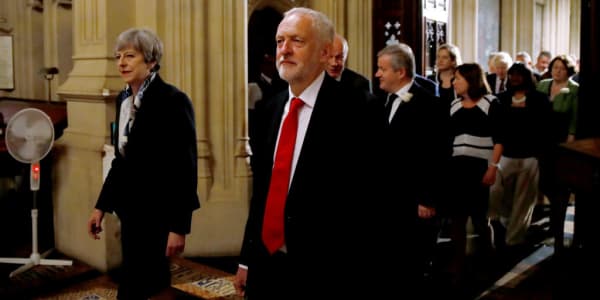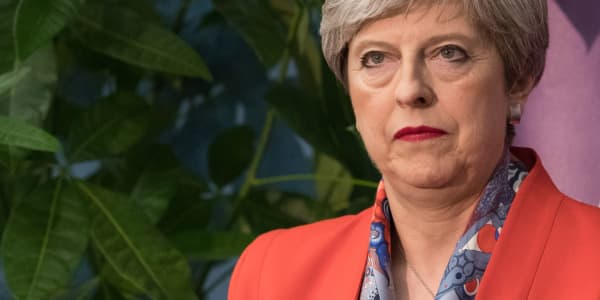Incumbent U.K. Prime Minister Theresa May's ability to deliver a Brexit that benefited the U.K. was up for debate at a meeting of major business players at Canary Wharf Tuesday.
"I'm even more a backer of Brexit now than I was (pre-referendum)," Matthew Elliott, former CEO of the Vote Leave campaign and senior political adviser at Shore Capital, told CNBC at the Federal Election: What the City Hopes to See event.
Elliott supported May's now infamous coinage that "no deal is better than a bad deal" as an initial negotiating position and said that it was important that the U.K. had "several deals signature-ready for the moment at which we leave (the EU.)"
He also explained that May's strategy in calling the snap election was sound, ideally giving herself a full five year term in which to police a transition period following the U.K.'s divorce from the EU and push through free trade agreements.
"I'm confident that there will be a win-win situation," he said.
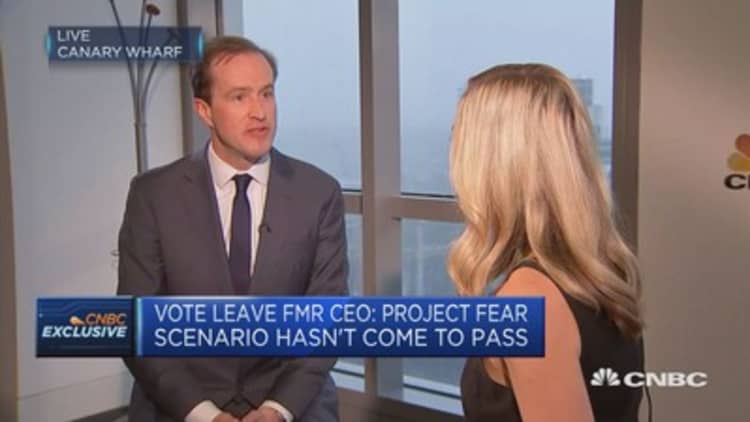
May as a Brexit negotiator was a stumbling block as far as Roland Rudd, chairman of Open Britain and Finsbury, was concerned. He spoke to CNBC of his concern that "the Prime Minister (has) identified the European Union leaders as the enemy, and that they'll see her as the enemy," which he implied was not conducive to successful talks.
Rudd accused May of only providing scant detail on Brexit negotiations, despite painting Thursday's vote as being solely about the divorce, and said that it was "clearly wrong" that no deal was better than a bad deal.
Straddling both sides of the argument was John Mills, chairman of Labour Leave and JML. "I've always thought that Britain had a poor deal out of our membership (with the EU)" he said.
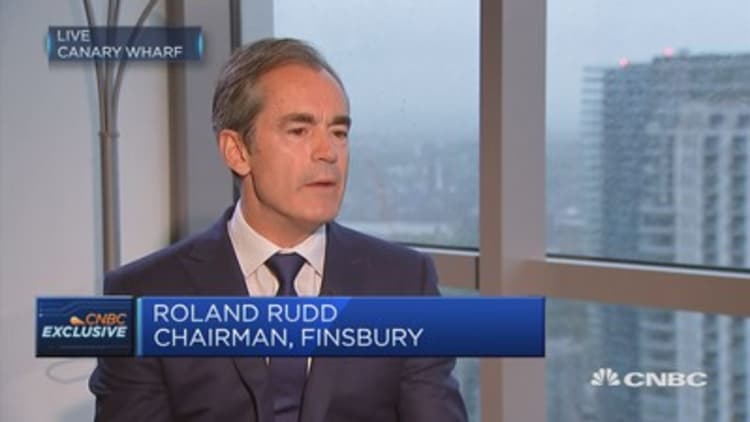
For Mills, there was an "easy answer" to an optimal Brexit: "For the UK to come out of the single market, out of the European Economic Area, out of the customs union, and then to negotiate a free trade deal with the EU-27."
Rudd and Mills were not singing from the same hymn sheet on Labour leader Jeremy Corbyn's potential to be the next prime minister.
Rudd said that he was "very critical" of Corbyn for "having facilitated Brexit and for having such a lackluster campaign during (the run up to) our referendum."
He backed Labour Brexit spokesperson Keir Starmer, who would otherwise lead negotiations, as being "very able." Should Starmer be leading the charge in Brussels, Rudd said that he "would almost certainly expect us to stay in the single market."
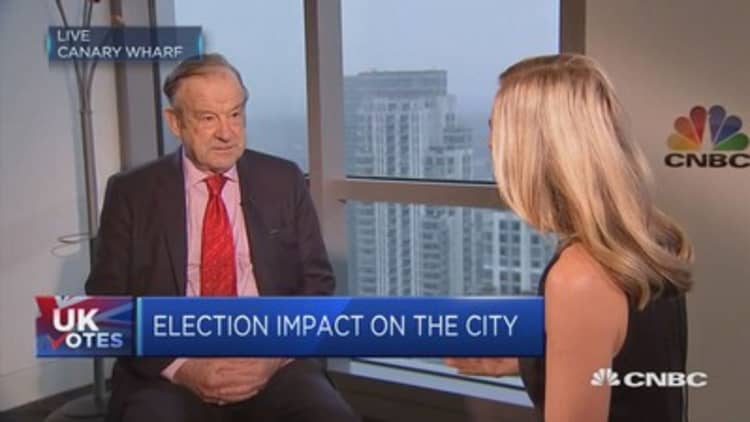
Meanwhile, Mills spoke of Corbyn's ability to connect with voters and "strike a strong chord with a very large number of people." Corbyn has provided "hope, where I don't think that Conservatives have done that," Mills said. He also defended Corbyn's proposed raising of corporation tax to 26 percent as not being totally out of sync with the rest of continental Europe.
Elliott disagreed, saying that "I would be astounded if the prime minister wasn't re-elected," and that he expected May to increase her majority."
"Business confidence would really go through the floor if Labour got in," he added.




